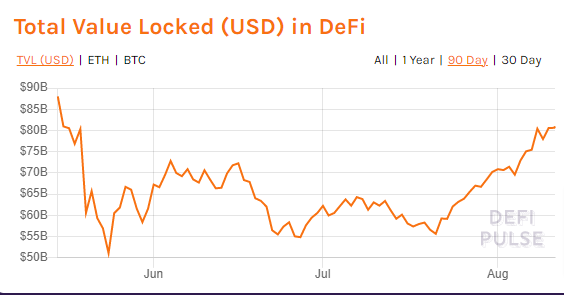And finally, here’s what Justina’s interested in this morning |
Yesterday hackers stole about $600 million in cryptocurrencies from the PolyNetwork protocol in what looks like the biggest theft ever in decentralized finance. It highlights one of the biggest risks of DeFi and what sets it apart from even centralized crypto or traditional finance. There’s a distinct smart-contract risk for token investors and yield farmers that requires some degree of computer-science expertise to properly evaluate -- the kind that’s not necessarily typical if you’ve decided to take your TradFi trading prowess to the crypto world. Worse yet, the peril of a hack is one that could obliterate much of your otherwise hefty profits from the tantalizingly high yields in DeFi.
You can get a sense of the vulnerabilities from some code post-mortems we’re starting to see from the PolyNetwork hack.
Many DeFi traders tend to deal with this risk with a series of shorthands. How long has the project been around? What are the developers’ background and are they pseudonymous? Is the code for the project copied from another one, and how reputable is that original one? Is there a third-party audit? One warning sign about the PolyNetwork hack, I’ve heard this morning, is that cross-chain protocols, which facilitate communication across various blockchains, are particularly complex and nascent.

So if you have the patience and skill to peruse a smart contract, you have an edge -- and an understanding of how to best take advantage of a protocol’s mechanics. Unfortunately for PolyNetwork and some of its users, it seems like someone applied that to nefarious ends.

No comments:
Post a Comment